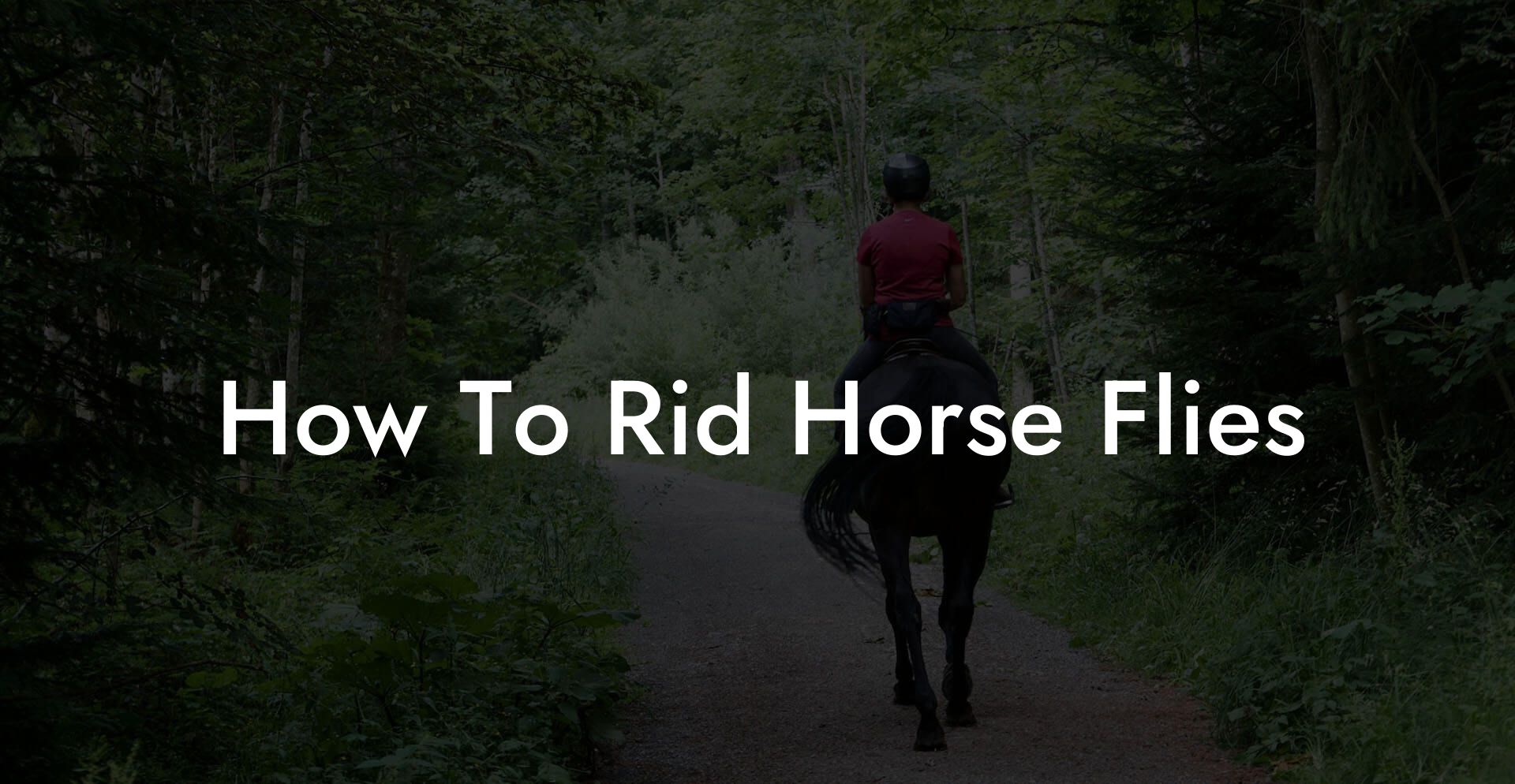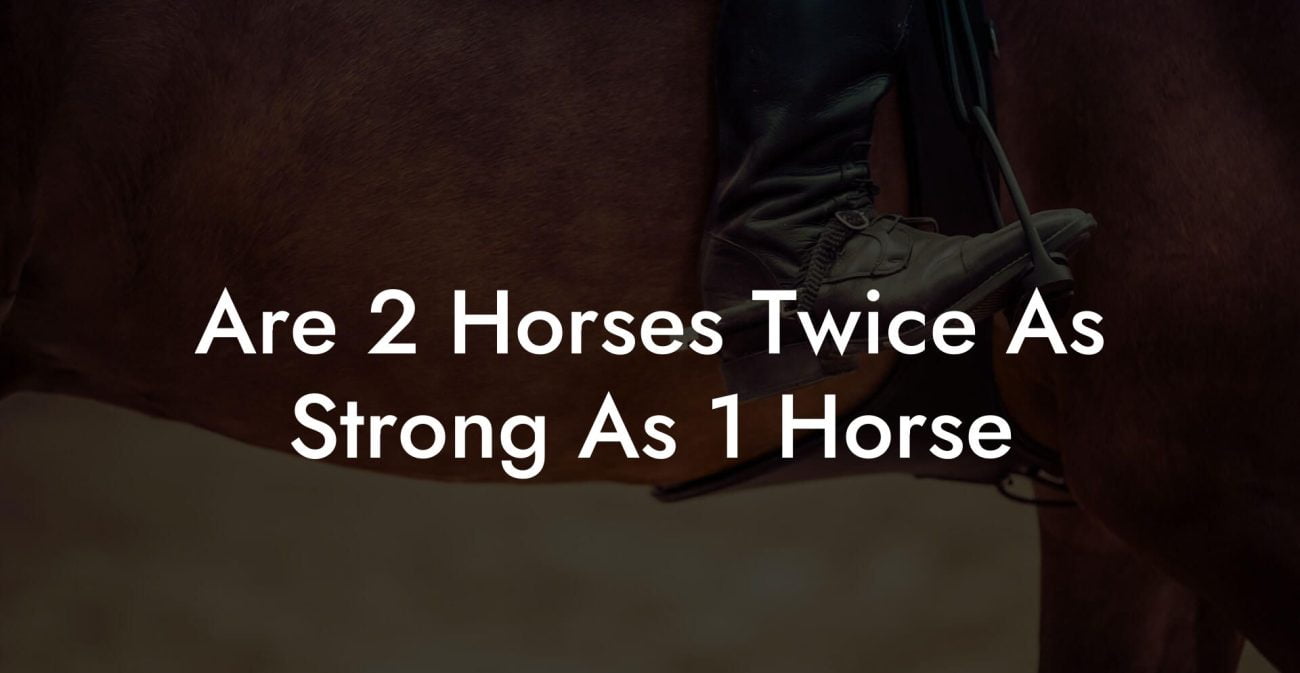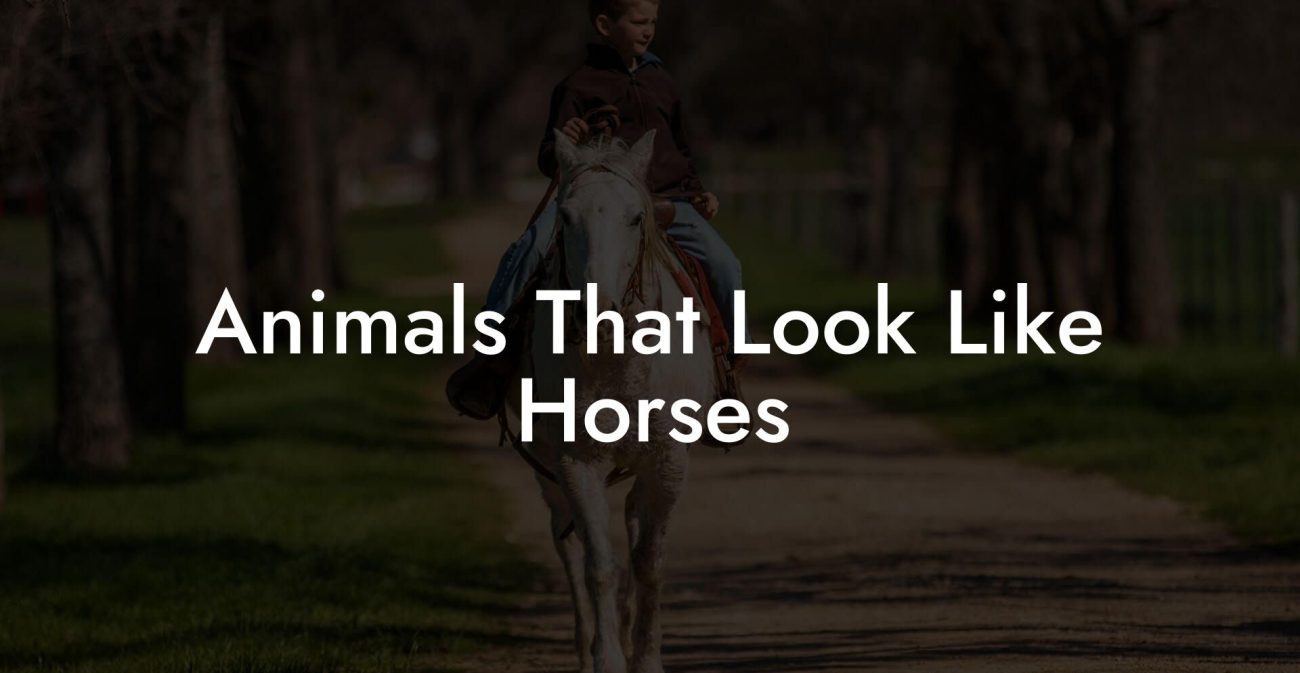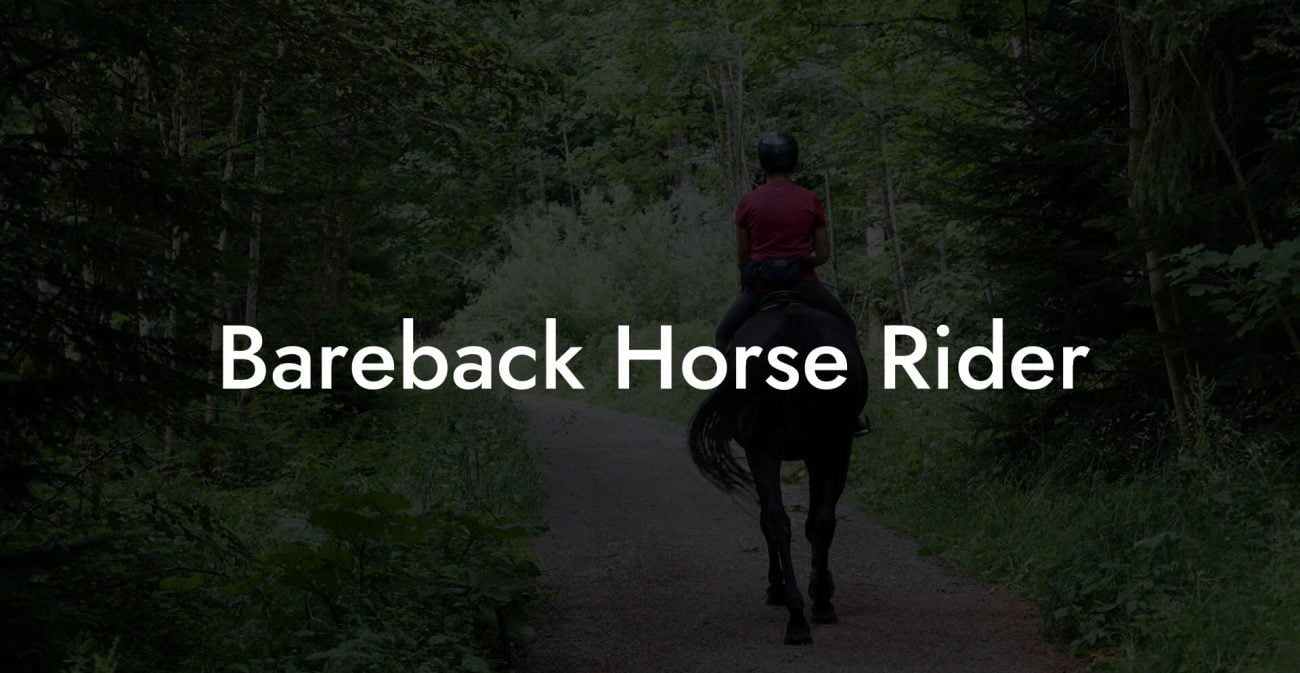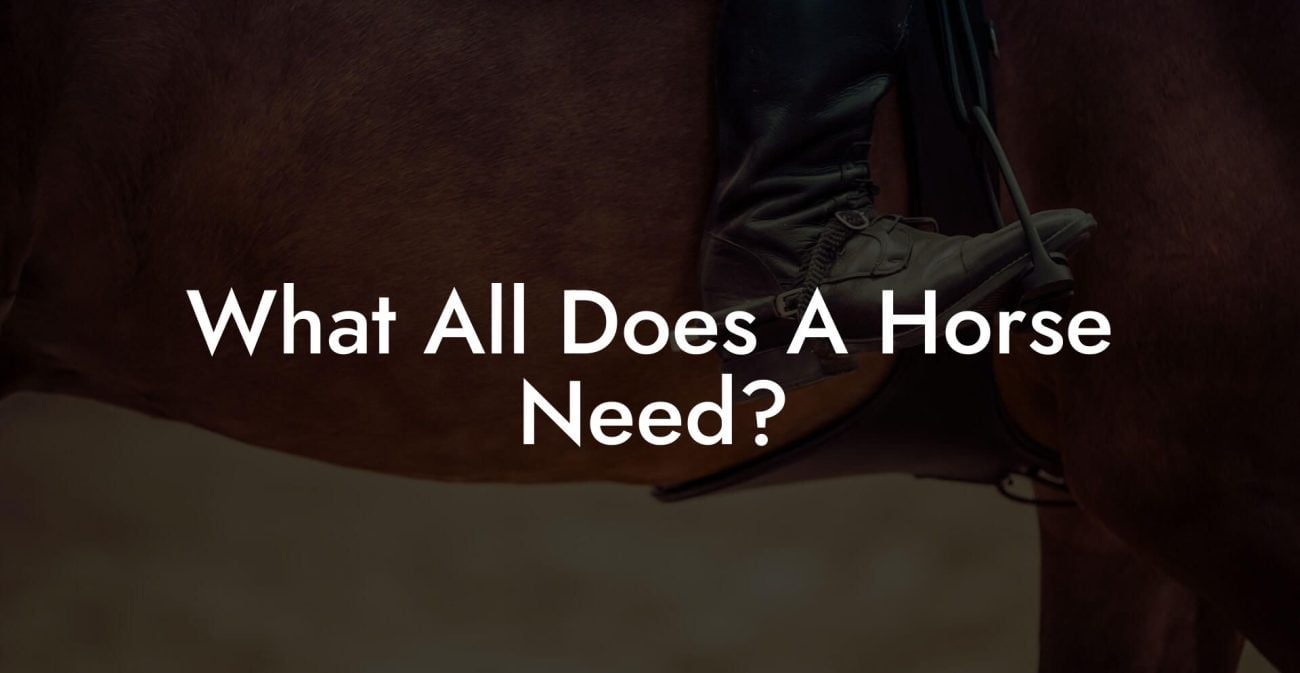Battling horse flies can feel like you’re starring in your very own wild-west showdown – with these bloodsucking bandits buzzing around your favorite equine companion. If your horse’s summer days are getting interrupted by these pesky, persistent pests, you’re in the right place. Let’s dive into everything from natural remedies and DIY fixes to high-tech solutions that help you reclaim your pasture and let your horse gallop free without the sting of a thousand bites.
Quick Links to Useful Sections
- Understanding the Problem: Why Horse Flies Are More Than Just a Nuisance
- Identifying Horse Fly Behavior: Their Life Cycle and Vulnerabilities
- Effective Natural Remedies to Rid Horse Flies
- Essential Oils and Herbal Repellents
- Plant-Based Barriers
- Homemade Vinegar Traps
- Modern and DIY Solutions for Horse Fly Eradication
- Electric Bug Zappers and UV Traps
- DIY Sticky Traps
- Portable Fans and Air Movement
- Integrated Pest Management: A Holistic Approach to Your Horse’s Environment
- Environmental Sanitation
- Biological Controls
- Mechanical Barriers
- Commercial Repellents and Their Use: Weighing the Pros and Cons
- Preventative Measures: Creating a Horse Fly–Resilient Space
- Regular Cleaning and Maintenance
- Vegetation Management
- Smart Use of Repellents Year-Round
- Case Studies: Real-World Experiences with Horse Fly Control
- The Natural Route: Embracing Essential Oils and Plant Defenses
- Tech Meets Tradition: Combining UV Traps with Integrated Pest Management
- A DIY Champion: Constructing Home-Made Traps
- Resources and Community Support: Your Next Steps
- Strategies That Work: Combining Multiple Approaches for Maximum Impact
- Embracing Technology: Mobile Apps and Monitoring Tools
- FAQ: Your Most Pressing Horse Fly Questions Answered
- Your Roadmap to a Horse Fly–Free Environment
Understanding the Problem: Why Horse Flies Are More Than Just a Nuisance
Horse flies aren’t your average backyard bug. These aggressive insects, known for their painful bites and relentless behavior, target horses relentlessly. Unlike mosquitoes that simply annoy you with a few bites, horse flies can cause significant irritation to your equine friend. Their bites can lead to skin irritation, allergic reactions, and even infections if left untreated.
The problem isn’t just in the immediate discomfort, they can stress out your horse, affecting its overall health and behavior. And let’s be real, no horse (or human) wants to deal with that kind of hassle when all they really want is to enjoy their day in the sun.
For Gen-Z and millennial horse enthusiasts, combining modern science with a touch of old-school ingenuity means embracing a holistic approach to combating pests. Let’s break down why these critters are such a big deal and what makes them hard to beat.
Identifying Horse Fly Behavior: Their Life Cycle and Vulnerabilities
To effectively rid your space of horse flies, you first need to understand their weird, wild ways. These insects are masters of survival with a life cycle that’s as fascinating as it is annoying:
- Eggs: Adult females lay eggs in damp, muddy areas near water sources, prime territory for a lazy day at the barn.
- Larvae: Once hatched, the larvae thrive in moist conditions, feeding on decaying organic matter. Their hidden development phase makes control a bit trickier.
- Pupae: After feeding and growing, larvae transform into pupae. During this stage, they’re tucked away in the muck until emerging as adult horse flies.
- Adults: When the horse flies finally emerge, they waste no time feeding on blood. It’s their mission to cause as much havoc as possible.
Knowing these stages not only demystifies their behavior but also shines a light on the perfect times and methods to target them. Whether it’s adjusting your stall hygiene or strategically deploying repellents when the weather turns warm and damp, understanding their life cycle is the first step in beating these pests at their own game.
Plus, armed with insight into their vulnerabilities, you can customize your approach, sometimes nature itself provides the tools for an effective counterattack.
Effective Natural Remedies to Rid Horse Flies
If you’re a fan of natural, eco-friendly solutions, you’re in luck. There are several organic methods that can deter horse flies without resorting to harsh chemicals. These strategies blend age-old wisdom with a dash of modern creativity.
Essential Oils and Herbal Repellents
Essential oils are a favorite among natural remedy aficionados. Oils like eucalyptus, lavender, citronella, and peppermint have insect-repelling properties. Mix a few drops with water and a carrier oil to create a spray that can be applied around your horse’s immediate environment.
For those who enjoy a DIY approach, consider these steps:
- Combine 10 drops of citronella oil, 10 drops of lavender oil, and 5 drops of peppermint oil with 1 cup of distilled water.
- Add a teaspoon of witch hazel (a natural emulsifier) to the mixture.
- Shake well and spray around the barn, stable, and any outdoor areas where your horse frequents.
This simple concoction not only keeps the horse flies at bay but also leaves behind a pleasant, natural scent.
Plant-Based Barriers
Mother Nature has her own built-in repellents. Certain plants, such as marigolds, basil, and mint, are natural deterrents for horse flies. Strategically planting these around your pastures and stables can create a subtle yet effective barrier.
If you have a green thumb, consider planting these in clusters. Not only will they enhance your outdoor aesthetics, but they’ll also reduce the local horse fly population by making their home less appealing.
Homemade Vinegar Traps
Believe it or not, horse flies aren’t fans of acidic environments. Create a simple trap by mixing apple cider vinegar with a few drops of dish soap in a shallow dish. Place this trap around your stable to lure in and drown these relentless pests.
The vinegar’s strong aroma attracts the flies, while the dish soap breaks the surface tension, trapping them effectively. It’s an inexpensive, non-toxic solution that you can make in minutes.
Modern and DIY Solutions for Horse Fly Eradication
If natural remedies aren’t quite cutting it or you’re in need of a more immediate fix, modern and DIY solutions can pack quite a punch. Arm yourself with technology and a bit of creative energy to turn the tables on these winged warriors.
Electric Bug Zappers and UV Traps
For a tech-savvy approach, electric bug zappers have become a popular tool in the fight against horse flies. These devices use UV light to attract and electrocute insects on contact. Place them around the stable and grazing areas to reduce the population significantly.
UV traps are particularly effective at night or during low-light conditions. However, remember that placement is key – position them away from areas where your horse spends most of its time (unless you’re okay with dramatic light shows in the middle of a serene pasture).
DIY Sticky Traps
Another effective option for the hands-on fixers among us is the DIY sticky trap. These can be constructed using inexpensive materials like a piece of bright-colored fabric (horse flies are attracted to vibrant colors) and a sticky adhesive. Hang these traps in areas where horse flies are most active.
Pro tip: Regularly replacing the adhesive or the entire trap ensures that it continues to work at its optimum level.
Portable Fans and Air Movement
Believe it or not, horse flies are not the best fliers when it comes to strong air currents. Setting up portable fans around stables or paddocks can create an environment that disrupts their flight patterns, effectively keeping them away.
This solution is especially appealing for modern horse owners who prefer a chemical-free environment. Plus, the gentle breeze can add an element of comfort for your equine companion on hot, sticky days.
Integrated Pest Management: A Holistic Approach to Your Horse’s Environment
Integrated Pest Management (IPM) is an innovative, sustainable approach that combines various pest control methods to manage horse fly populations over the long term. Instead of relying on just one solution, IPM encourages a combination of cultural, biological, and mechanical practices.
Environmental Sanitation
Keeping a clean, well-maintained environment is essential in limiting breeding grounds for horse flies. Proper disposal of manure, removal of decaying vegetation, and ensuring water sources are maintained can drastically reduce fly populations.
Biological Controls
Certain beneficial insects and organisms can help keep horse fly numbers in check. For example, encouraging the presence of dragonflies and certain bats can naturally reduce populations. They act as natural predators, creating an ecological balance.
Additionally, the introduction of nematodes, a type of microscopic worm, into the soil can help control the larval stages of horse flies, attacking them at their weakest phase.
Mechanical Barriers
Installing physical barriers like fly screens, nets, and even strategic use of fans can help create a hostile environment for these pests. By understanding where horse flies typically enter or thrive, you can design your space to limit access and control their numbers.
IPM isn’t just about one quick fix, it’s a long-term, comprehensive strategy that embraces multiple tactics to protect your horse’s environment sustainably.
Commercial Repellents and Their Use: Weighing the Pros and Cons
When DIY and natural methods aren’t enough to counteract an especially stubborn infestation, commercial repellents come into play. These products range from sprays and granules to topical applications for your horse.
The pros are obvious, they often provide quick and measurable results. However, it’s important to consider the potential downsides: some products may contain chemicals that can irritate your horse’s skin or harm beneficial insects in the process.
Before choosing a commercial product, research its ingredient list, read reviews from other horse owners, and consult with a veterinarian. Balance effectiveness with safety to ensure you are not causing more harm than good.
In many cases, mixing commercial and natural approaches may yield the best results. For example, using a gentle, eco-friendly spray on your horse while employing fly traps around the stable can provide layered protection against horse flies.
Preventative Measures: Creating a Horse Fly–Resilient Space
Prevention is key when it comes to managing horse flies. By proactively designing and maintaining an environment that is less appealing to these pests, you can significantly reduce the risk of infestation.
Start by examining your pasture and stable. Are there stagnant water sources or overly damp areas that could serve as breeding grounds? Simple fixes like ensuring proper drainage, eliminating puddles, or even installing gutters can make a huge difference.
Regular Cleaning and Maintenance
Routine barn cleanups, regular manure removal, and periodic deep cleaning of equipment and tack not only benefit your horse’s overall well-being but also remove potential attractants for horse flies.
Vegetation Management
Keeping grass trimmed and ensuring that vegetation around stables isn’t overly dense creates an environment that’s less hospitable for horse flies. In contrast, overgrown, moist areas can quickly turn into breeding hotspots.
A tidy, well-organized environment sends a clear message: this is not the place for pests to settle.
Smart Use of Repellents Year-Round
Even when the weather cools down, incorporating a routine pest management plan is crucial. Regularly refreshing repellents, reapplying natural solutions, and maintaining traps can help ensure that your space remains defended against sudden surges in fly activity.
Remember, a proactive strategy is far more effective than scrambling for a solution during a sudden outbreak.
Case Studies: Real-World Experiences with Horse Fly Control
Sometimes the best way to learn is through the stories of those who have been in the trenches of equine pest control. Here are a few real-life success stories that highlight the variety of approaches and techniques horse owners have used to reclaim their space.
The Natural Route: Embracing Essential Oils and Plant Defenses
Jessica, a millennial horse owner with an eco-friendly mindset, transformed her stable area by incorporating a mix of natural remedies. After extensive research and trial, she began using a combination of essential oil sprays and strategically planted marigolds around the barn. Within weeks, her horse’s discomfort dramatically decreased, and the frequency of bites was noticeably lower. Jessica’s experience is a testament to the power of nature-based solutions when paired with consistency.
Tech Meets Tradition: Combining UV Traps with Integrated Pest Management
Mark, an entrepreneurial equestrian with a penchant for innovation, decided to integrate modern bug zappers into his comprehensive Integrated Pest Management plan. By installing UV traps around his pasture and pairing them with improved drainage systems and regular stall maintenance, Mark achieved a significant drop in horse fly numbers. His solution was a blend of technology and traditional IPM strategies, proving that a balanced approach can yield impressive results.
A DIY Champion: Constructing Home-Made Traps
Then there’s Sarah, who used her crafty skills to create DIY sticky traps and vinegar traps, positioning them in strategic spots around her barn. Her hands-on approach not only reduced the pest population but also sparked inspiration within her local horse community to try creative, low-cost methods. Sarah’s story shows that with a little ingenuity and perseverance, even the most annoying pests can be kept at bay.
These case studies illustrate that whether you lean towards natural remedies, modern technology, or DIY innovation, the key is to adopt a strategy that fits your style and meets the unique needs of your environment.
Resources and Community Support: Your Next Steps
Tackling horse flies isn’t a journey you have to embark on alone. There’s a vibrant, helpful community of equine enthusiasts, veterinarians, and pest-control experts ready to share their tips, experiences, and support.
Look for local equestrian groups, online forums, and social media communities where you can ask questions, learn from real-life experiences, and even swap DIY recipes for natural repellents. Also consider reaching out to your local agricultural extension office for advice tailored to your region’s climate and pest challenges.
Additionally, many veterinary clinics and equine supply stores offer workshops and informational sessions on pest management. These resources can provide you with up-to-date research, new products, and step-by-step guides to enhance your horse’s comfort and safety.
Taking advantage of community support not only broadens your knowledge base but also connects you with like-minded individuals who understand that keeping horse flies at bay is about creating a safe, comfortable, and enjoyable living space for your horse.
Strategies That Work: Combining Multiple Approaches for Maximum Impact
The battle against horse flies is rarely won by a single solution. Rather, it’s the result of combining multiple strategies consistently over time. This integrated approach might include:
- Prevention: Regular cleaning, vegetation management, and environmental adjustments that reduce breeding grounds.
- Natural Repellents: The use of essential oils, herbal sprays, and plant-based barriers to deter these pests naturally.
- Modern Gadgets: Installation of UV traps, electric bug zappers, and the clever use of portable fans to physically disrupt horse fly behavior.
- DIY Solutions: Homemade sticky traps and vinegar solutions that offer an affordable, creative edge in your pest control arsenal.
- Community Guidance: Leaning on expert advice from veterinarians, equine enthusiasts, and agricultural specialists to stay updated on the latest trends.
By strategically combining these methods, you can create a robust defense system that not only tackles current infestations but also prevents future outbreaks. The synergy between prevention, natural remedies, and modern technologies is your secret weapon in the fight against horse flies.
Embracing Technology: Mobile Apps and Monitoring Tools
In today’s digital age, even tackling horse flies can benefit from a bit of tech-savvy innovation. Mobile apps and online platforms offer valuable insights into local pest patterns, weather forecasts, and even DIY recipe sharing. With a few taps on your smartphone, you can:
- Track horse fly trends in your area and get alerts when populations peak.
- Log your integrated pest management efforts to see what techniques yield the best results.
- Connect with a community of horse owners who share tips, tricks, and even local supplier recommendations.
These digital tools take the guesswork out of timing your interventions, helping you deploy repellents or adjust environmental settings just when you need to. For those who love incorporating modern trends into every aspect of their life, this blend of nature, ingenuity, and technology is a match made in equestrian heaven.
FAQ: Your Most Pressing Horse Fly Questions Answered
Below are some frequently asked questions about controlling and eliminating horse flies. Whether you’re new to pest management or a seasoned strategist, these insights can help guide your next steps.
1. What attracts horse flies to my horse?
Horse flies are drawn to movement, heat, and carbon dioxide. Horses, with their warm bodies and natural exhalation, provide the perfect target. Additionally, they’re attracted to sweaty, damp fur and even the bright colors of certain saddles and blankets.
2. Are natural repellents as effective as commercial products?
Many horse owners have found that natural repellents such as essential oil sprays, vinegar traps, and herbal barriers are highly effective. While results can vary depending on environmental conditions, natural methods offer a safe, non-toxic alternative to chemical sprays.
3. Can I safely use electric bug zappers around horses?
Yes, electric bug zappers can be used safely around horses as long as you position them in low-traffic areas or at a distance from where your horse typically grazes. Ensure that any installation minimizes the risk of accidental contact.
4. How often should I reapply repellents or replace DIY traps?
For optimal results, natural sprays should be reapplied every few hours, especially during peak fly activity. DIY traps, like sticky boards or vinegar traps, should be replaced or refreshed frequently to ensure their maximum effectiveness.
5. Can environmental changes help reduce horse fly populations long-term?
Absolutely. Proper maintenance of your pasture and stable, including eliminating standing water, managing vegetation, and keeping the area clean, can greatly reduce the breeding grounds for horse flies, resulting in long-term pest control.
6. What role do mobile apps play in managing horse flies?
Mobile apps offer real-time information on pest activity, weather conditions, and user-shared tips, helping you to time and tailor your pest management strategies effectively.
7. How can I tell if my horse fly management strategy is working?
You’ll notice fewer bitten areas on your horse, less agitation during fly peaks, and overall improved behavior. Tracking these changes over time can help fine-tune your strategy.
8. Do sudden weather changes affect horse fly activity?
Yes, horse flies are highly sensitive to weather conditions. Hot, humid days typically see higher activity, while cooler or windier days generally result in a reduced presence.
9. Can I combine multiple pest control methods?
Combining prevention techniques, natural remedies, modern gadgets, and community resource insights is often the most effective approach. Each method addresses different aspects of the problem.
10. Where can I find additional support for managing horse flies?
Look for online equestrian communities, agricultural extension services, and local veterinarians who specialize in equine care. These resources can provide tailored advice and product recommendations.
Your Roadmap to a Horse Fly–Free Environment
The fight against horse flies is an ongoing journey, one that demands both persistence and ingenuity. With a combination of natural, modern, and DIY strategies, you’re now armed with a comprehensive roadmap to reclaim a comfortable and safe space for your beloved horse.
Embrace every tactic as part of a layered defense, each repellent spray, every strategically placed bug zapper, and all the community insights you gather contribute to turning your stable and pasture into a fortress against these bloodthirsty insects. This is not just about pest control; it’s about creating an environment where your horse can thrive without the stress and discomfort caused by horse flies.
As you implement these strategies, keep track of what works best for your unique situation. Adapt and adjust your approach over time, and remember that even incremental changes can lead to significant improvements in your horse’s overall well-being.
Your commitment to a horse fly–free space is a step toward a better quality of life for both you and your horse. With patience, persistence, and a little ingenuity, you can outsmart these pesky intruders and create a dynamic, resilient environment.
Now, gear up, put on your metaphorical cowboy hat, and take charge of your pest control strategy, transform your stable into a haven where horses can enjoy every sunny day without ever having to dodge a pesky, buzzing intruder. The battle isn’t just about eradication; it’s about building a community and a lifestyle that champions comfort, sustainability, and a touch of DIY swagger.

